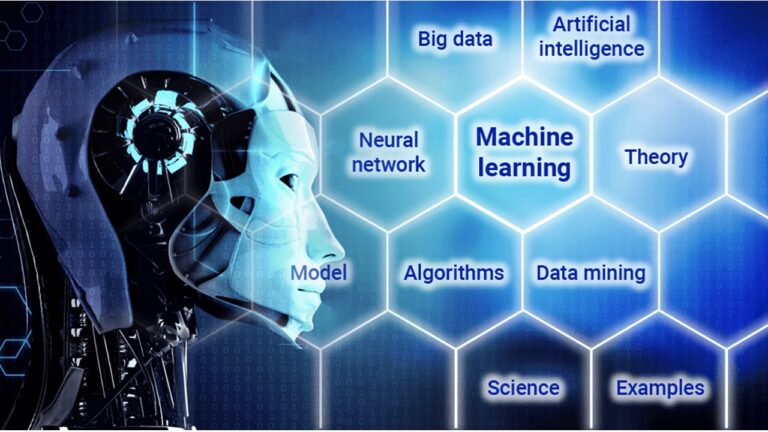Prashant Bhardwaj
- A Discussion with Mr. Prashant D. Bharadwaj on the Notable Benefits of Artificial Intelligence
- University of Cincinnati College of Business Event
Moderator: Good afternoon, everyone! Thank you for joining us today at the University of Cincinnati College of Business. We’re excited to be here with Mr. Prashant D. Bharadwaj, a leading expert in the field of artificial intelligence and its business applications. Today, we’ll be discussing the notable benefits of AI and how it’s shaping various industries, from healthcare to cybersecurity. Mr. Bharadwaj, it’s a pleasure to have you with us.
Prashant D. Bharadwaj: Thank you for having me. It’s a pleasure to be here and engage in this discussion. AI is such an exciting and dynamic field, and I’m eager to explore its diverse impacts with you all.
Moderator: Absolutely! Let’s dive right in. One of the most talked-about impacts of AI is in **healthcare**. Mr. Bharadwaj, how do you see AI enhancing the healthcare industry?
Throughout his career, PD has led initiatives that demonstrate how responsible innovation can be used to build competitive advantage. By fostering a culture of ethical decision-making, collaboration, and ensuring that technological advancements benefit all stakeholders, from employees to customers and the wider community.
PD has a proven track record in implementing data-driven strategies that not only streamline operations but also foster a culture of innovation. His leadership style emphasizes collaboration and agility, ensuring that teams are equipped to embrace change and leverage technology to achieve outstanding results.
In addition to technical expertise, PD is committed to mentoring emerging leaders in tech and promoting best practices in ethical and responsible innovation.
Through this blog, we are excited to have his thought leadership, insights and vision to be available to other CIOs CTOs and leaders to help them in driving their organization’s future success.
Please join us in this Journey!
Prashant D. Bharadwaj: Great question. AI is already revolutionizing healthcare in profound ways. One of the key areas is diagnostics. With machine learning algorithms, healthcare providers can analyze medical images with incredible precision, identifying issues that may have been missed by the human eye. AI also helps doctors predict patient outcomes more accurately, allowing for early interventions and personalized treatment plans. We’re also seeing AI playing a pivotal role in drug discovery—AI models are capable of simulating how different compounds interact with the body, drastically speeding up the process of finding effective treatments. The possibilities are vast.
Moderator: That’s fascinating. So, not only is AI enhancing diagnoses, but it’s also accelerating the discovery of treatments. Moving on, AI’s influence extends beyond healthcare. What about **economic growth**? How does AI boost economies?
Prashant D. Bharadwaj: AI is truly a driving force for economic growth. It allows businesses to automate routine tasks, streamline operations, and enhance productivity, leading to significant cost savings. Take industries like manufacturing and retail—AI is enabling more efficient supply chain management, predicting consumer demand, and optimizing inventory. It’s also creating new markets and industries, such as AI research and development. In fact, the rise of AI is not only improving productivity in traditional sectors but also creating entirely new job opportunities, boosting innovation, and fostering the development of new technologies. In the long term, AI contributes to a more competitive, agile economy.
Moderator: Absolutely, the productivity and innovation that AI enables have a significant ripple effect. Now, we can’t ignore one of the most pressing issues of our time: **climate change**. Mr. Bharadwaj, how can AI contribute to climate change mitigation?
Prashant D. Bharadwaj: AI plays a crucial role in addressing climate change. It helps researchers model climate patterns, predict environmental changes, and understand the long-term impact of different scenarios. Machine learning algorithms are instrumental in analyzing large environmental datasets, helping us make better decisions on resource management and energy consumption. In practical terms, AI supports the optimization of renewable energy systems, such as wind and solar power, by predicting energy demand and balancing grid systems. In addition, AI can monitor deforestation, waste management, and carbon emissions, making it easier to implement sustainable practices across industries.
Moderator: That’s a great point. AI can truly drive sustainable solutions in the fight against climate change. Speaking of transformation, **transportation** is another area where AI is having a profound impact. Could you tell us about AI’s role in advancing transportation?
Prashant D. Bharadwaj: AI is redefining transportation, particularly through autonomous vehicles. Self-driving cars are poised to reduce accidents caused by human error, ease traffic congestion, and offer more mobility options for individuals who might otherwise have difficulty driving. But AI doesn’t stop there—it’s also transforming logistics. AI-powered systems are improving route planning, optimizing fuel usage, and reducing delivery times. Public transportation systems are benefiting from AI as well, with real-time tracking and predictive analytics that enhance the passenger experience. The integration of AI into transportation is making systems more efficient, safer, and more accessible.
Moderator: AI truly seems to be a catalyst for change across many sectors. Let’s talk about **customer service**—an area where AI is helping businesses interact with consumers in new ways. What’s your take on AI’s role in this field?
Prashant D. Bharadwaj: AI is making customer service more efficient and personalized. Virtual assistants and chatbots are a great example of this—these tools can handle basic inquiries 24/7, offering immediate solutions to customers without needing human intervention. But it’s not just about automation; AI is helping companies analyze customer data and predict future needs. This allows businesses to offer highly personalized experiences, whether it’s tailored recommendations or proactive customer support. Ultimately, AI is helping companies build stronger relationships with their customers by providing faster, more relevant services.
Moderator: Personalized and efficient customer service is something that many companies are striving for. Now, let’s move to the world of **scientific discovery**. How is AI pushing the boundaries of research and innovation in science?
Prashant D. Bharadwaj: AI is an indispensable tool for scientific research. The ability to process and analyze massive datasets has opened up new possibilities across fields like genomics, physics, and materials science. AI helps scientists model complex systems, identify patterns, and even predict outcomes. In the field of drug discovery, for example, AI is speeding up the identification of potential therapeutic agents, reducing the time and cost of bringing drugs to market. AI is also helping to automate experiments and simulations, which accelerates the pace of scientific breakthroughs. The ability to uncover insights from vast amounts of data is fundamentally changing how we approach research.
Moderator: The speed at which AI is helping scientists uncover new insights is remarkable. Turning to **financial services**, we’ve seen AI’s impact in detecting fraud and improving risk management. What other benefits does AI offer to the financial industry?
Prashant D. Bharadwaj: AI is revolutionizing the financial industry by enabling better decision-making and improved risk management. Machine learning algorithms are particularly good at analyzing transaction data, identifying patterns, and spotting potential fraud before it happens. This enhances security and minimizes financial risks. AI also helps banks assess credit risk more accurately, providing more equitable access to loans. Additionally, AI-powered tools such as robo-advisors and chatbots are making financial planning and advice more accessible, allowing customers to receive personalized recommendations at a fraction of the cost of traditional financial services.
Moderator: It’s incredible how AI is enhancing everything from fraud detection to financial advice. Let’s talk about **agriculture** now. How is AI helping farmers increase productivity and sustainability?
Prashant D. Bharadwaj: AI is transforming agriculture by providing farmers with powerful tools to monitor crop health, predict weather patterns, and optimize irrigation. With AI-powered sensors, drones, and satellite imagery, farmers can get real-time insights into their fields, enabling them to take proactive measures against disease outbreaks or nutrient deficiencies. AI also helps optimize crop rotation and harvesting schedules, reducing waste and improving yields. In addition, automation tools, such as robotic harvesters and weeding systems, are making farming more efficient and reducing the need for manual labor. Ultimately, AI is helping farmers achieve higher productivity while promoting sustainable practices.
Moderator: The efficiency AI brings to agriculture is truly impactful, especially in addressing global food security concerns. Finally, let’s discuss **cybersecurity**. With rising threats, how is AI enhancing our ability to protect sensitive data?
Prashant D. Bharadwaj: AI is a game-changer in cybersecurity. As cyber threats become more sophisticated, AI systems are being used to detect anomalies and predict potential attacks before they occur. Machine learning algorithms can analyze vast amounts of data in real-time, identifying unusual patterns of behavior that may indicate a security breach. This allows organizations to respond more quickly and accurately to threats. AI also helps in automating threat detection and response, reducing the burden on cybersecurity professionals and enabling faster mitigation of risks. In an age where data breaches are increasingly common, AI is essential for safeguarding sensitive information.
Moderator: It’s clear that AI is vital in securing our digital world. Mr. Bharadwaj, thank you for sharing your insights. AI’s potential is vast, and its applications across healthcare, business, agriculture, and beyond are transforming the world in ways we never imagined. We appreciate you joining us today for this engaging discussion.
Prashant D. Bharadwaj: Thank you so much. It was a pleasure to be here and discuss the incredible potential of AI with all of you. We’re just at the beginning of what AI can achieve, and it’s exciting to think about the future ahead.
Moderator: And thank you to everyone who joined us. We hope you found today’s discussion valuable and thought-provoking. Let’s continue exploring the opportunities AI offers as we move forward into a more innovative and connected world!








